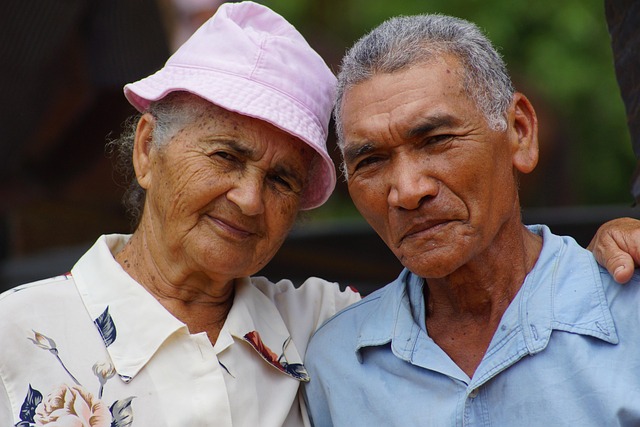Oregon's legal framework protects grandparental rights, fostering family connections. Navigating these protections involves demonstrating a significant relationship, with options for custody or time-sharing arrangements to ensure meaningful interactions while respecting parental authority. Challenges include complex procedures and social factors, but available legal resources and support networks empower grandparents to advocate for their rights.
In Oregon, understanding grandparental rights protection is crucial for maintaining family connections. This article navigates the legal framework surrounding grandparental rights, highlighting who qualifies for visitation and how to establish custody or time-sharing arrangements. We explore common challenges and barriers, emphasize the balance between rights and responsibilities, and provide resources for grandparents seeking support. By delving into these aspects, we aim to empower families to protect and foster meaningful relationships.
- Grandparental Rights: Legal Framework in Oregon
- Who Qualifies for Grandparent Visitation?
- Establishing Legal Custody or Time Sharing
- Challenges and Barriers to Grandparent Access
- Rights vs. Responsibilities: Balancing Family Dynamics
- Legal Resources and Support for Grandparents
Grandparental Rights: Legal Framework in Oregon

In Oregon, grandparental rights are protected by a robust legal framework designed to preserve family connections and ensure stable relationships between grandparents and their grandchildren. Navigating grandparental rights protection involves understanding specific laws that govern visitation, custody, and access. The state recognizes the significant role grandparents often play in a child’s life and provides legal avenues to safeguard these bonds.
Key aspects of Oregon’s legal framework include provisions for reasonable visitation rights, court-ordered custody arrangements, and the ability to petition for access when parents are unable or unwilling to provide it. These laws ensure that grandparents have a say in their grandchildren’s lives, fostering a supportive and loving environment for family relationships. By understanding these legal protections, grandparents can actively participate in navigating grandparental rights to maintain strong familial ties.
Who Qualifies for Grandparent Visitation?

Navigating grandparental rights protection in Oregon involves understanding who qualifies for visitation rights. In general, grandparents may be eligible to seek visitation if they can demonstrate a significant relationship with their grandchildren and that the visitation is in the child’s best interests. The state recognizes both biological and adoptive grandparents’ rights, ensuring a balanced approach to family dynamics.
To establish eligibility, grandparents should provide evidence of a substantial bond with their grandchildren, such as regular visits, shared activities, or other meaningful interactions. Additionally, they must show that the visitation would not cause any harm or disruption to the child’s well-being and current family structure. This process is designed to uphold the best interests of both the grandchild and the grandparents while ensuring a healthy navigation through grandparental rights protection in Oregon.
Establishing Legal Custody or Time Sharing

Establishing legal custody or time-sharing arrangements is a crucial aspect of navigating grandparental rights protection in Oregon. Grandparents can file for custody or visitation rights if they wish to spend significant time with their grandchildren. The state recognizes both legal custody and time-sharing agreements, offering a flexible framework to accommodate various family situations. Legal custody grants grandparents decision-making power regarding the child’s care, while time-sharing focuses on defining specific periods when grandparental access is permitted.
When establishing these arrangements, it’s essential to prioritize the best interests of the grandchild. Oregon courts consider factors such as the child’s relationship with their grandparents, stability in the home environment, and any potential impact on the child’s well-being. Grandparents should aim to collaborate with parents and other legal guardians to create a cooperative plan that ensures regular and meaningful interactions while maintaining the child’s overall welfare.
Challenges and Barriers to Grandparent Access

Navigating grandparental rights protection in Oregon can present several challenges and barriers for grandparents seeking meaningful access to their grandchildren. One significant hurdle is the legal process itself, which often involves complex court procedures and specific requirements that must be met. Grandparents may face difficulties in understanding and navigating these legal avenues, especially if they are unrepresented or lack legal expertise.
Additionally, factors such as distance, shared custody arrangements, and conflicts between parents can further complicate matters. The presence of a stable support system for the child, including a primary caregiver, can also impact grandparent access. Social and cultural norms, along with personal biases, might inadvertently influence court decisions, making it crucial for grandparents to be well-informed and prepared when advocating for their rights.
Rights vs. Responsibilities: Balancing Family Dynamics

Navigating grandparental rights protection involves understanding a delicate balance between rights and responsibilities within family dynamics. In Oregon, grandparents have legal rights to visit and interact with their grandchildren, but these rights are not absolute. They come with responsibilities to respect the parents’ decisions regarding their children’s upbringing, fostering a harmonious environment.
This balance is crucial as it ensures the well-being of both families. Grandparents play a significant role in a child’s life, offering love and support. However, their involvement must complement, not override, the primary caregivers’ authority. By adhering to this balance, Oregon families can navigate grandparental rights protection healthily, maintaining strong family ties while upholding parental autonomy.
Legal Resources and Support for Grandparents

Navigating grandparental rights protection in Oregon can be a complex process, but there are legal resources and support available for grandparents seeking to ensure their rights. Many organizations offer assistance tailored specifically to grandparents’ unique circumstances. Legal aid societies, for instance, provide free or low-cost legal services to those who cannot afford private attorneys, ensuring grandparents have access to representation during custody battles or visitation disputes.
Support groups and advocacy organizations also play a crucial role in empowering grandparents. These networks offer guidance, share information about local laws, and connect grandparents with one another, fostering a sense of community. They may also host workshops or webinars on navigating legal systems and understanding their rights, enabling grandparents to make informed decisions regarding their involvement in their grandchildren’s lives.






